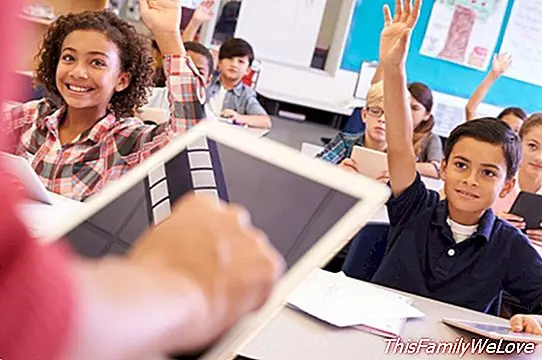6 ICT challenges in educational innovation

Finding solutions to different technological challenges from the real experiences of six educational centers that are currently in this process of transformation in the field of ICT has been the goal of Edutech Cluster, a day dedicated to developing the process of generating an educational ecosystem advanced that helps the whole system to change.
Some of the most relevant challenges in the educational innovation are how to incorporate all the educational agents in the evaluation of transversal competences, how to implement the digital identity of the student or define the keys for the improvement of the communicative policy between the school and the families.
6 ICT educational challenges
1. The digital identity of the student, beyond the portfolio. In recent years, the information management needs of students have multiplied and there are multiple tools to manage them: ERPs, EVAs, etcetera. The problem is that they are usually independent tools. The centers need solutions that allow them a unique and centralized view of the information associated with each person, which is called the student's digital identity. The main challenge posed by the project is, therefore, how to systematically implement the student's digital identity through open systems and models, which represents a great challenge for the industry.
2. Create technological tools to personalize learning. The homework of shared evaluation It is a challenge for teachers who have to reach agreements on key content and who have little real time to meet and evaluate cooperatively. The ideal shared evaluation tool should have not only the following characteristics: multiplatform, digital, open, accessible, flexible and scalable, collaborative, multiuser and that is visually attractive, but also allow a interaction with the environment to visualize the skills and abilities of the student in addition to their results.
3. The context in the generation of learning environments: how can you find spaces between schools and companies to share more needs at the level of project work. The main challenge is to find the synergies between the classroom and the business world. From the shared and identified needs, it would be to create or build a resource bank where to find project ideas.
4. The new role of the school: empower the student, to families and teachers
The empowerment of students in their learning process is key and the school must facilitate this role while also facilitating the involvement of families and other educational agents. The main challenge for teachers is how to monitor the learning process, what indicators would improve this process and, above all, how to improve the communication policy between the school and families.
5. Incorporate other educational agents in the assessment of transversal competences. Schools need tools that allow a holistic and multi-faceted evaluation of the student to be shared with all agents. All these interlocutors must be coordinated and it is also necessary that there are agents who can integrate the different visions and can resolve possible contradictions. The Administration will have a key role to facilitate this change in the evaluation model.
6. Evaluation in new learning environments. A new approach to methodology, organization, spaces and time, necessarily requires a different approach to evaluation. And the new technologies applied to the evaluation should help to make a more precise, real and conscious follow-up of the learning processes that are given to children, teachers, families and other educational agents. Therefore, the challenge is to have a platform that allows a 360º evaluation by all the educational agents.
Synergy between the classroom and the business world
In the current context where educational innovation prevails, it is increasingly important to find and facilitate the synergies between the projects developed in the classroom and the business world. The empowerment of students in their learning process is key and the school must facilitate that role while facilitating the involvement of families and educational agents. This new context implies the need to monitor the learning process and not so much the assessment of the final result and, above all, the improvement of the communicative policy of the school towards families.
The Administration will have a key role to facilitate this change in the evaluation model. In this sense, it will be increasingly important to have platforms that allow a 360º evaluation of all the educational agents and that allows to accompany the student in their learning process.
Patricia Vilaró




